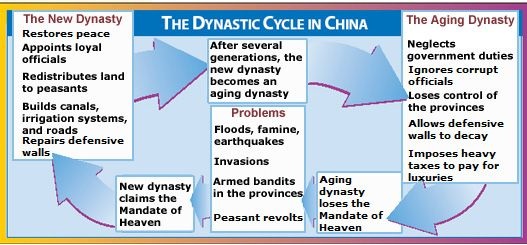θοτς;To those Philosophers who hold that the World has existed from eternity, I believe it is possible to reply, that, if such great antiquity was true, it would be reasonable that there should be some record of more than five thousand years, except it is seen that the records of those times have been destroyed from diverse causes: of which some were acts of men, some of Heaven. Those that are acts of men are the changes of the sects (religion) and of languages. Because, when a new sect springs up, that is, a new Religion, the first effort is ((in order to give itself reputation)) to extinguish the old; and if it happens that the establishers of the new sect are of different languages, they extinguish it (the old) easily. Which thing is known by observing the method which the Christian Religion employed against the Gentile (heathen) sect, which has cancelled all its institutions, all of its ceremonies, and extinguished every record of that ancient Theology.
It is true that they did not succeed in entirely extinguishing the records of the things done by their excellent men, which has resulted from their having maintained the Latin language, which was done by force, having to write this new law in it. For if they could have written it in a new language, considering the other persecutions they suffered, none of the past events would have been recorded.
And whoever reads the methods used by Saint Gregory and the other Heads of the Christian Religion, will see with what obstinacy they persecuted all the ancient memorials, burning the works of the Poets and Historians, ruining statues, and despoiling every thing else that gave any sign of antiquity. So that, if to this persecution they had added a new language, it would have been seen that in a very brief time everything (previous) would have been forgotten.
It is to be believed, therefore, that that which the Christian Religion wanted to do against the Gentile sect, the Gentiles did against that which preceded them. And as these sects changed two or three times in five or six thousand years, all memory of things done before that time are lost. And if, however, some signs of it were left, it would be considered a fabulous thing, and not to be given credence: as happened with the history of Diodorus Siculus, who although he gives account of forty or fifty thousand years, none the less it is reputed ((as I believe it is )) a mendacious thing.
As to the causes that come from Heaven, they are those that extinguish the human race and reduce the inhabitants of parts of the world to a very few. And this results either from pestilence, or famine, or from an inundation of water; and the last is the most important, as much because it is the most universal, as because those who are saved are men of the mountains and rugged, who, not having any knowledge of antiquity, cannot leave it to posterity. And if among them there should be saved one who should have this knowledge, he would hide it or pervert it in his own way in order to create a reputation and name for himself; so that there remains to his successors only what he wanted to write, and nothing else. And that these inundations, pestilences, and famines, occur, I do not believe there is any doubt, not only because all histories are full of them, but also because the effects of these oblivious things are seen, and because it appears reasonable they should be;
For in nature as in simple bodies, when there is an accumulation of much superfluous matter, it very often moves by itself and makes a purgation which is healthy to that body; and so it happens in this compound body of the human race, that when all the provinces are full of inhabitants so that they cannot live or go elsewhere in order to occupy and fill up all places, and when human astuteness and malignity has gone as far as they can go, it happens of necessity that the world purges itself in one of the three ways, so that men having been chastised and reduced in number, live more commodiously and become better. Tuscany, then, was once powerful, as was said above, full of Religion and Virtu had its own customs and its own national language; all of which was extinguished by the Roman power. So that ((as was said)) nothing remained of it but the memory of its name.
https://www.constitution.org/2-Authors/ ... 2.htm#2:05
@Αρίστος
@Chilloutbuddy




 Vladimir, STOP!
Vladimir, STOP!